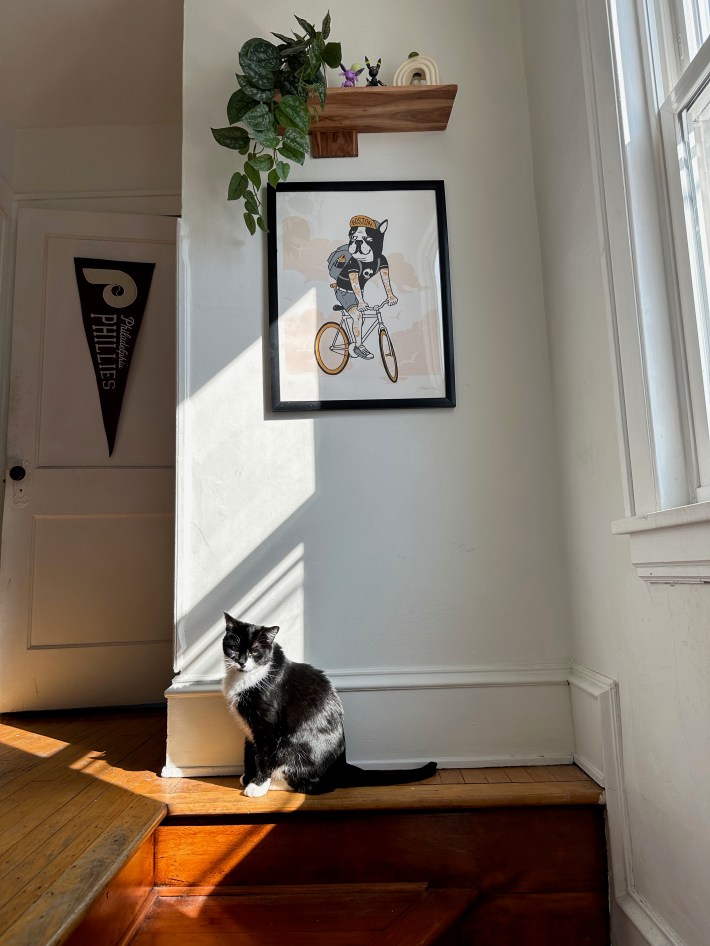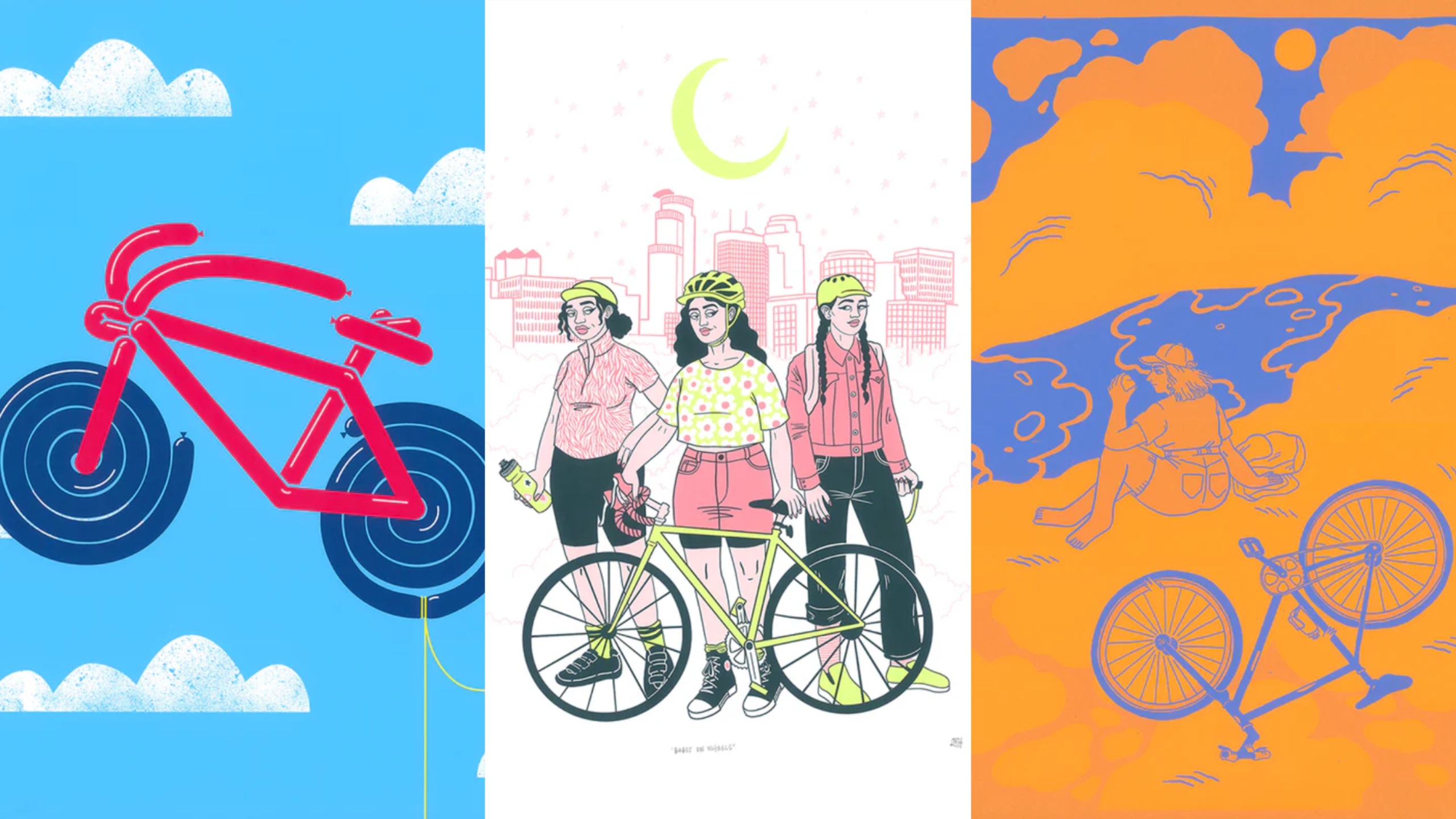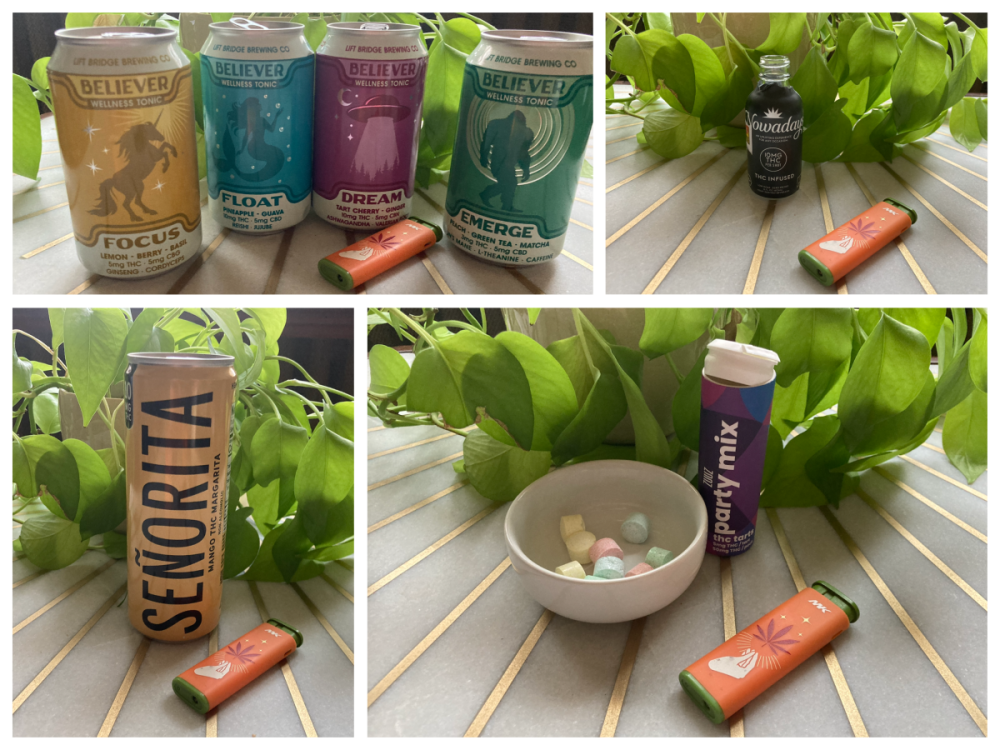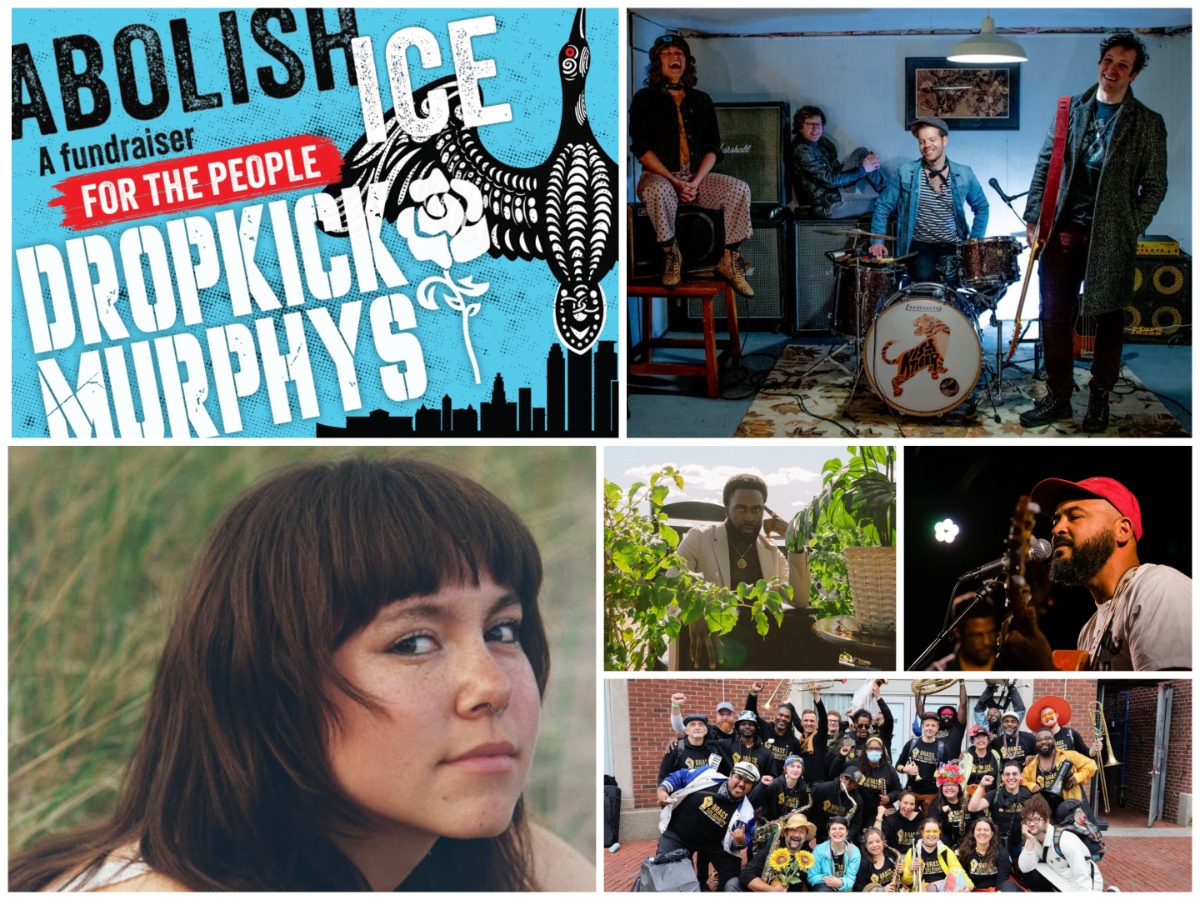When Charles K. Youel hosted the first Artcrank show in 2007, he had no idea what it would become. He just wanted to do something fun with all the talented visual creatives he knew from his day job in advertising and design—many of whom, like Youel, were really into bikes.
"We were working on stuff that keeps the lights on and puts food on the table," he tells Racket, "but a lot of us also happened to be bike people, and when we were at work—and when we weren't at work—we'd talk about bikes."
Over the decade-plus that followed, the Minneapolis-based bike poster show would become a hit nationally, and even internationally, with events in cities around the U.S. and London. But all good things, etc., and Youel announced the end of Artcrank to the show's 35,000 Instagram followers last week, saying that it's time to "hit the brakes and call it good."

That first Artcrank, back in 2007, was intended to be a one-off event. This was around the time that poster culture was on the rise, with events like Flatstock at SXSW becoming big hits. Local shops like Burlesque of North America were entering the national consciousness, with write-ups everywhere from City Pages to Juxtapoz Magazine.
Youel knew that the folks at One on One Bicycle Studio, then located on Washington Avenue in the North Loop, were interested in adding more in-person events to their bike-slash-coffee-shop's offerings. He pitched them on the idea of doing a poster show about bikes, and they jumped at the opportunity.
For the first show, 35 artists created individual, bike-inspired works. Youel figured maybe 50 people would go, they'd have some beers, and head home after a nice, laid-back night.
"Being the super hip, with-it person that I was, I didn't show up to my own event until, like, 15 minutes after it had started," he recalls. "And at that point there was already a line halfway down Washington Avenue. It was just like, 'Oh, well. This is not what I expected!'"
It was clear that there was a lot of enthusiasm for the show, and what was intended as a one-time bike poster party expanded into an annual event in Minneapolis. Eventually, Youel was fielding calls from folks who wanted to see Artcrank in their city, too, and before he knew it, it had become a kind of "traveling bike poster circus." Instead of doing one show a year, he was doing five, in cities like Boston, Portland, and San Francisco, cramming as much as he could into checked bags and hoping for the best.
"I'd never done an art show before," he chuckles. "I'm a copywriter and creative director; I work for an advertising agency. A lot of those early years were kind of like, 'Welp, I'm kind of making this up as I go, and I don't know what I'm not supposed to be doing.'" His plan was to do Artcrank "as long as I could get away with it, with the hopes that I could learn something from it."
That would be a pretty long time, as it happened. Youel knew the local bike culture was thriving, but it turned out people everywhere were excited to see bike culture represented in so many original ways, in posters they could take home and display. People everywhere had that relationship with bikes—the show just brought them together in a meaningful way.
"Like, yeah, I think Minneapolis has been the best case scenario for us as a place to start, but something about what made the show work here has made it work in every other place we've done it," he says. "There's just that really hardcore enthusiasm for what bikes represent, and the roles they play in people's lives."
(To his point, I attended my first Artcrank show in Boston, years before I moved to Minneapolis. I didn't even realize the show was based in Minnesota, only that some friends on the East Coast had some work in it. The print I bought there, of a tattooed Boston terrier riding a fixed gear, was one of the first pieces of art I purchased that wasn't a shitty movie poster from Newbury Comics. It still hangs in my south Minneapolis home to this day.)

The pandemic put the show on hold, of course, which let Youel reflect on what he wanted Artcrank to be. He'd been having back problems, for one, which isn't the best for someone who puts on an art show that requires 16-hour standing days. The more important factor was that, like so many people, the downtime offered an opportunity to sit back and ask, "What do I really want to do?"
"Is there a place that I can take this idea, realistically, that we haven't been able to take it yet?" Youel found himself asking. "Is there something that we can do to make this feel fresh and relevant in all the ways that it was when the idea first came around?"
Ultimately, he felt that he'd taken the idea about as far as possible. And he wanted the decision to stop to be one that he was making, not one that was made for him.
Artcrank will continue selling prints online through the end of August, at which point the webstore, including prints and merch, will come down. But Youel isn't closing the door entirely—there are plenty of prints that never made it to the site, and eventually he might be ready to revisit his popular poster production.
The last 16 years have been a pretty wild ride. Bicycling magazine called Artcrank "cycling's coolest art show," and credited Youel one of the "cyclists who are changing the world." The Artcrank founder says he's tremendously proud of the recognition, but that was never really his goal. The point was to bring people together, to celebrate bikes, and to connect cyclists with new artists that they'd love. On all those points, he's succeeded—and then some.
"None of it has really seemed real," he says. "The one possibility that I was not prepared for was for it to be as successful as it's been in terms of appealing to people in the way that it has."
"I have gotten the nicest notes, and seen the nicest comments, from people who have participated in the show, and people who have gone to the show," he continues. "It just reminds me that we did manage to do some good things in the course of the last 16 years."






